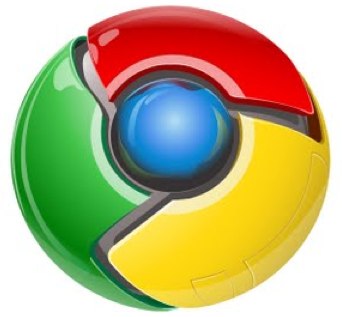Google's new core business: All Internet, all the time

Over the weekend, my colleague Chris Dawson wrote a blog post around a reader's question: "Why isn't Google more focused on its core business?" To me, it was an interesting question because I tend to see everything new that Google tries - from Android phones to Google TV to the more recent Chrome OS-powered notebook - as products and services that increase the amount of time we spend interacting with content on the Internet.
Consistently, when Google execs are asked how the company plans to monetize something - especially when it's not immediately obvious - the answer is always the same: Google benefits when people use the Internet. And Google has certainly built a nice little war chest of cash on its core search and advertising businesses over the years, allowing the company the flexibility not only to invest in some innovative ideas, but also to acquire some innovative companies - and talent.
Not every product launch is a winner, obviously, and readers of this blog can surely rattle off a list of products or services that have failed to dominate - or even make a dent. Social networking is one example. Direct sales of mobile phones is another. And let's not forget the one-year life span of Wave.
Also: Now Wave is dead, here are 10 more projects Google should kill
That brings me back to the reader's question about Google focusing on its core business.
My test unit arrived at my home late last week and the family had some time over the weekend to put it through some everyday usage tests. Was it an instant success? Hardly. There were plenty of questions, thoughts, concerns and unresolved issues that were thrown my way. All along, I tried my best to answer them the way I thought Google might - but realized quickly that it was too much, too soon for them. Sure, they'll adapt eventually - but they just aren't quite ready yet.
- My son wanted to know how he was supposed to play DVD movies if 1) there was no DVD drive and 2) there was no DVD playing software. My reply: Who watches DVDs? If you want to watch a movie, shouldn't you just stream it on the Internet?
- My daughter wanted to know how she was supposed to open the Word docs on her thumb drive. That was certainly a challenging one - but, in a Google world, documents are created on Google Docs and stored online.
- My wife wanted to know how she was supposed to transfer pictures to the machine. I quickly turned that one on her and asked when the last time she actually opened a jpeg file on our Macbook. These days, she shoots most photos on her smartphone and uploads them to her Facebook albums for instant sharing.
- The question of music came up. Where was the iTunes library and how would they sync their iPods without it? My quick comeback: Who syncs music to an iPod when you can use a smartphone to stream Pandora or access the personal playlists over mSpot?
- I never did have a good comeback for the whole printing issue, other than to tell the kids - who needed printouts of their homework assignments - that cloud printing was something that Google was still working on.
Also: Google's Chrome OS: Printing works fine
While it may sometimes feel like Google is focused on everything but its core businesses, nothing could be further from the truth. In fact, some might argue that Google is increasingly tweaking its search and advertising businesses so much that it could be viewed an anti-competitive. The Wall Street Journal ran a story last week that looked into the perception - or reality - that Google displays its own content ahead of links to competing sites. Google disputed the allegations, with a spokesperson telling the WSJ:
We built Google for users, not websites, and our goal is to give users answers. Sometimes the most useful answer isn't '10 blue links,' but a map for an address query, or a series of images for a query like 'pictures of Egyptian pyramids.' We often provide these results in the form of 'quick answers' at the top of the page, because our users want a quick answer.
The rise of competitors means that Google can't afford to become stale in anything it does, including search. It not only needs to keep pushing the limits of the technologies that it's in today but also needs to keep pushing the limits of the Web itself.
Google TV, for example, has its fair share of critics and the first set of products are hardly big winners. But the company could be on to something and further development could be successful at bringing the Internet experience to one of the biggest audiences on the planet - TV viewers.
Now, Google wants to turn the notebook computer into a device that's all Internet, all the time. There's no way that anyone can determine success or failure after only a few days with an unbranded, admittedly buggy laptop that's been in the hands of early adopters for only a few days - even though many already have.
There will certainly be more to come on the Chrome OS front as laptops start to surface next year, challenging the likes of Apple and Microsoft in the computer operating system game. After all, the first Android phone was hardly considered to be a game changer when it first arrived. But in a relatively short time, Android has seen such strong momentum that the future of the smartphone game is largely considered to be a two-company war between Apple and Google.
Might we be saying similar things about Chrome notebooks a year from now?